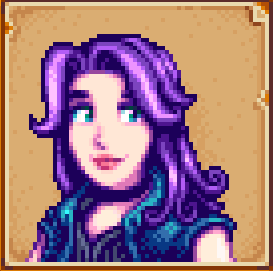Lotus Farming In Another World

Like many people who live in cities and spend most of their time on the computer, I fantasize a lot about leaving it all behind and touching grass forever. I try my best to be cognizant of just how much of a fantasy this is: I find it easy to get bored in the biggest city in America, so I'd probably go insane within days of moving out to a farm somewhere. Boredom aside, there is a reason manual labor is something people often try to escape, and that the ability to do it in a leisurely fashion is mostly the province of the lucky few who've managed to cash out enough that they're not reliant on it to keep a roof over their heads. Farming, carpentry, whatever - these things are hard to do and come with their own set of tedious challenges, just like any other way of earning a living. Do not dream of labor, etc.
I am also from a small city in a mostly rural state, and have spent enough of my life in these kinds of places to know that the dream of friendly neighbors and a tight-knit community isn’t terribly realistic. While there are those who love the idyllic country life, a whole lot of people live in rural places either because they are running away from something or because they have no other choice. You are much more likely to have a neighbor like the guy I met in rural Maine - a vet who drinks a case of beer a day in his locked basement so no one can hear him screaming - than a gingham-clad tradwife who brings you leftover baked goods. The bucolic fantasy of leaving the big city to live in a friendly place where everyone knows everyone else is about as realistic as getting isekai'ed.
All of this is just to establish that I am well aware that these dreams are pure escapism. So the closest I'll likely ever get to living them out is playing videogames. For a long time I avoided farming sims and Harvest Moon-likes entirely out of a distate for what Ian Bogost calls "playbor". I even made an art game about it, envisioning what a game without labor might look like (it was not fun to play). But in the dog days of winter last year I gave in to the urge and bought Stardew Valley, which ended up eating my life for several months.
Stardew Valley is a truly guilty pleasure for me. It is the type of game that feels like it was made in a lab to be extremely bad for me. It has a perfectly designed "just one more day" game loop that keeps me playing well past my bedtime, and sucks you into doing virtual chores at the expense of the very real ones you might be neglecting. It is a fantasy of a world that I would, frankly, very much like to live in: everyone can become your friend or lover if you give them enough presents, you can keep building and automatic and optimizing your farm until you've built an infinite gold machine, and all the problems in front of you are inherently fixable. It manages to simultaneously appeal to the dark desire in my heart for things to be gentle and easy and my sicko gamer spreadsheet brain. People call games like Stardew cozy but I think they're cozy in about the same way heroin is. I am not the first to make this observation, but there is something deeply sad about living in a world where "being able to get stuff done and feel satisfied" is something you can only accomplish in a simulation, but damn if it doesn't feel good all the same.
All of that said, it is a triumph of game design. The layers of ludology at work in Stardew Valley are incredible, and while the general fantasy of an easy, cozy world gives me a lot of pause there is quite a bit of work involved. People may be machines you put presents into and get affection out of, but that affection decays over time. You might be able to build your infinite money machine but it takes a lot of work to get there. There are sharp edges to struggle against, and constant choices to be made as you fight against the day clock: everything you choose to do is at the expense of something else.
Fields of Mistria is an early access game I picked up last week that dares to ask the question: "what if Stardew Valley were easier?" It is an extraordinarily well-done ripoff. It scratches just about all the same itches. It's mechanically and structurally near-identical to Stardew, and I imagine that most people playing it are simply using it to fill a Stardew-shaped hole in their lives. But as I've been playing it I've found myself fascinated by the little changes it has made to the recipe: if you peek a little behind the curtain, you start to notice the edges it's sanded off of what was already the game equivalent of a down comforter.


The immediately obvious thing is that it's hornier. The art is more explicitly anime-coded and the characters curvier, buffer, and more scantily clad. While the game still hasn't released its full romance events I doubt it'll get X-rated - it doesn't really fit the gentle vibe - but it does feel like a cynical choice. I'm not a puritan, I don't think this is an inherently bad thing, but it felt worth noting in the context of a game so clearly guided by audience wish fulfillment.
Its setting is also more explicitly magical: it takes place in a sword and sorcery world that reads more like an isekai setting than anything else. I could fill an entire separate essay with the ways that isekai exists solely as a dogshit power fantasy for sad losers, but I'll hold myself back and just say that these aesthetic and narrative choices make it clear who they're marketing to and the world they're trying to create. All the game is missing is a prologue where you get hit by a truck.
Making a horny anime version of an existing game is not a new concept, but what interests me more are the mechanical changes NPC Studio has made. I'll caveat this by noting again that the game is early access, but as it stands, they've softened a whole lot of the crunch. A few things have really stood out to me:
- Relationships don't decay, ever. You never have to make the difficult choice between losing someone's heart and maintaining your farm.
- Items don't disappear if you leave them out of your inventory. Inventory management is a perpetual nightmare in this type of game, and while Fields doesn't do away with that aspect entirely, you can happily forage and dig and harvest without worrying about what to throw away. It'll be right there whenever you come back.
- Resources outside of your farm (specifically rocks and trees) respawn every day. I didn't even think to try and cut down a tree in the "city" area until a month of in-game time because I'm so used to that being forbidden, but eventually realized that the game functionally allows you an infinite renewable source of several crucial resources. You can plant trees on your farm, but there's almost no reason to.
Combined, these mechanics make a game significantly less concerned with making its user watch the clock and make difficult choices. On the one hand, this feels nicer to me as a player. I don't constantly have to maintain a mental cost-benefit analysis of my actions, I'm not trying to optimize each day down to the second. If the point of these games is to be cozy, then these choices are effective. On the other, though, it weights the game towards that fantasy of "everything is easy and nothing hurts" to a degree that concerns me. Stardew, despite my issues with it, is a labor of love made by one (concerningly obsessive) guy. Fields feels more like a labor of cynicism.
I know these games are pure escapism regardless, so maybe this doesn't matter. But it will continue to bother me. Stardew, at the very least, tries to maintain friction for its users. This is addictive in its own way, but I think on net addiction to struggle is probably better for me than the warm embrace of nothingness. Mistria's level of pure coziness - which may well be a response to its developers' frustrations with its predecessor - is a fever dream of a life without sharp edges, a digital land of the lotus eaters.
To be clear, I'll keep horfing down the slop from this trough. I crave the cozy fantasy these games give me and I'm not strong enough to keep myself from indulging. And there are worse things than a little escape every now and then. The game is fun to play! But I try to remain clear-eyed about when I'm choosing to do something bad for me, and this passes that particular smell test. In a world that seems increasingly designed to envelop us in the fantasy of difficulty-free existence, games like this are one more form of escape that feel more like an opium den than a genuine release. There is joy and beauty and triumph in this world, and all of that, unfortunately, comes part and parcel with death by a thousand cuts. Coziness as this game conceives of it is not happiness, it's just the absence of pain.

